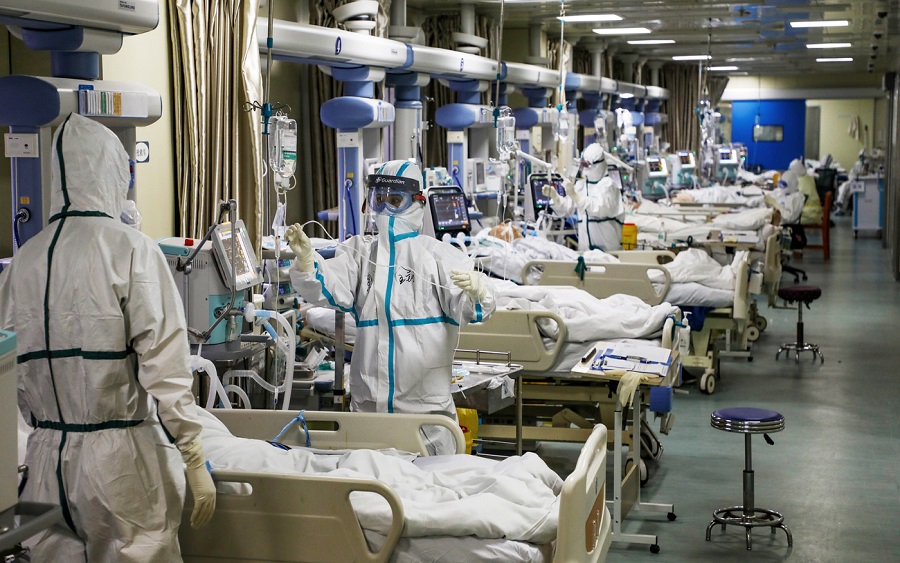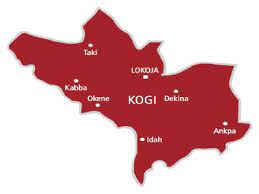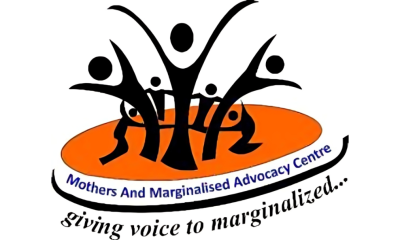Health
COVID-19: Nigeria’s Health Personnel, Facilities Overstretch — UNILORIN V-C

Prof. Sulyman Abdulkareem, the Vice-Chancellor, University of Ilorin says that the country’s healthcare system is facing serious challenges at the moment due to the COVID-19 pandemic.
Abdulkareem made this known on Monday, while speaking at the 36th Professional Initiation for Batch B 2020 medical graduands of the College of Health Sciences at the University of Ilorin.
“Our nation’s health care delivery was seriously challenged with the emergence of the COVID 19 pandemic.
“The global health crisis overstretched our health care facilities and exposed the weak link in our health care delivery system.
“There were no standard intensive care units and even the few available were overwhelmed and in the midst of this, our people were apprehensive and fearful,” he said.
Abdulkareem, however, commended the government’s “frantic effort to bridge this gap with the provision of Molecular Laboratories and oxygen plants across the country.”
He further noted that at the height of the pandemic, the number of front-liners was not adequate to cope with the number of patients, adding that the induction of the 28 doctors would change that dismal picture.
The Vice chancellor noted that their induction would increase the manpower resources in the health sector of the nation if the inductees stayed behind to practise in Nigeria.
The vice-Chancellor therefore, urged the newly inducted medical doctors to avail Nigerians of their services for a while even if they had the intention of seeking greener pastures outside the shores of the country.
He however, pointed out that they had the choice, noting that many members of the university’s medical alumni were front liners in the United States of America, United Kingdom, other parts of Europe, Saudi Arabia and other countries.
He urged them to be good ambassadors of the country that had invested so much in them anywhere they found themselves.
Also speaking, Prof. Olanrewaju Adedoyin, the Provost of the College of Health Sciences in the institution urged the inductees to practise with dignity, integrity and honour, adding that a good name was better than silver and gold.
He urged the graduands not to play God by keeping patients waiting unnecessarily but rather encourage their patients even when the situation looked gloomy and bleak.
Adedoyin also commended the university management for providing infrastructure that would enhance the training of medical practitioners.
He also commended the vice chancellor for the construction of the Molecular Diagnostic Laboratory and provision of the Institute of Medical Research and Training (IMRAT) among others.
“You should have good work ethics of punctuality and promptness in attending to the sick.
“Do not keep patients waiting unnecessarily. They also have feelings and other things to do with their time. Let your attitude to them be the first therapy they would obtain.
“Avoid shouting, bullying or insulting patients, no matter the provocation. Train yourself to be patient, warm and gentle with them,” he added. (NAN)
Health
WHO Approves 2 New Vaccines to Protect Infants From RSV

The World Health Organization (WHO), on Friday, issued recommendations for two new immunisation tools to protect infants from Respiratory Syncytial Virus (RSV)They included a maternal vaccine, administered to pregnant women in their third trimester to protect their newborns.The other was a long-acting antibody injection for infants, which begins to protect within a week of administration and lasts for at least five months.
According to WHO, RSV is the leading cause of acute lower respiratory infections in children globally. It causes around 100,000 deaths and 3.6 million hospitalisations each year among children under the age of five, while infants under six months are most at risk.Alarmingly, 97 per cent of these deaths occur in low and middle-income countries, according to WHO.Although RSV can infect people of all ages, “it is especially harmful to infants, particularly those born prematurely,” a WHO official, Kate O’Brien, said.O’Brien added that around half of all RSV-related deaths occurred in babies younger than six months.Considering the global burden of severe RSV illness in infants, WHO recommended that all countries adopt either the maternal vaccine or the antibody injection as part of their national immunisation strategies.“These RSV immunisation products can transform the fight against severe RSV disease, dramatically reduce hospitalisations and deaths, and ultimately save many infant lives worldwide,” O’Brien said. (NAN)Health
UNICEF Promotes Menstrual Hygiene for Girls

The United Nations Children’s Fund (UNICEF) has encouraged girls to embrace menstruation with pride and confidence, recognizing themselves as vital contributors to humanity’s sustainability.
Mrs Aderonke Akinwole, Social and Behavioural Change Specialist at UNICEF, gave the advice during an event on Wednesday organised with the Nigeria Girls’ Guild and Lagos State Primary Health Care Board.
The event was held to commemorate Menstrual Hygiene Day (MHDay) and was attended by students from both public and private schools across Lagos.
With the theme ‘Together for a Period Friendly World,’ the event aimed to raise awareness and promote dignity in menstrual hygiene.
“When a girl begins menstruation, it should be celebrated. It signifies her transition into womanhood and her ability to sustain life.
“They should be proud, and seek accurate, helpful information to remain safe, clean, and healthy during their period,” Akinwole said.
She emphasised that girls must not feel ashamed, as menstruation is a natural part of womanhood and a symbol of female dignity.
She urged the state government to increase sensitisation efforts and include menstrual hygiene education in school curricula, religious settings, and community platforms.
Akinwole also warned against stigmatisation, especially from boys, and called for boys to be educated to respect menstruation as part of girls’ lives.
“Girls should understand the menstrual cycle even before it starts. This should be part of health education in schools, churches, mosques, and communities,” she said.
She explained that girls need awareness on menstrual hygiene management and should know how to prepare for their periods in a healthy, informed way.
Mrs Honfor Adesola, Director of Education at Lagos State Primary Education Board, commended UNICEF’s support in promoting menstrual hygiene and addressing issues affecting girls.
Adesola highlighted that maintaining menstrual hygiene is vital in preventing infections and ensuring comfort throughout the menstrual cycle.
She noted that the event also helped to raise awareness about the Human Papillomavirus (HPV) vaccine available free in health centres across Lagos.
“We’re here to mark MHDay and to engage girls on HPV awareness. The state government has provided the vaccine, and sensitisation must continue,” she explained.
She encouraged girls to discuss the HPV vaccine with their parents to gain consent, ensuring protection against cervical cancer.
“The vaccine is safe, effective, and accessible in state facilities for girls aged nine to fourteen, but many have not yet been vaccinated,” she added.
Meanwhile, Ethagah Divine, Head Girl of New Estate Baptist Secondary School, Surulere, called on NGOs to provide sanitary pads for girls.
She urged more campaigns and rallies to distribute free menstrual products, like UNICEF did, to promote hygiene and dignity during menstruation.
Miss Emmanuella Azubuike, a student of the same school, expressed gratitude to UNICEF and partners for the impactful menstrual hygiene awareness event.
“This programme has expanded my knowledge on menstrual hygiene and HPV. More NGOs should support these campaigns to reach and educate more young girls,” she said. (NAN)
Health
Soludo’s Wife Establishes Pad Banks in 300 schools

Wife of Anambra State Governor, Dr Nonye Soludo, says she has established pad banks in 300 schools across the state as part of her pet project, Healthy Living Initiative.
Mrs Soludo disclosed this in a message in Awka on Wednesday to mark the 2025 World Menstrual Hygiene Day.
She said that the initiative was her own approach to helping school girls whose academic focus could be affected during menstruation and related emergencies.
Mrs Soludo stressed the need to provide immediate solutions for menstrual emergencies in schools, so that girls caught off guard could confidently rely on the pad banks.
“Official data say that an estimated 37 million women and girls in Nigeria are unable to afford sanitary pads and only rely on unhygienic alternatives.
“The data reinforce World Health Organisation and United Nations Children’s Fund finding that poor water, sanitation and hygiene infrastructure hinders safe and dignified menstruation for women and girls.
“Other data say that only two in five schools globally offer menstrual health education and just one in three have bins for menstrual waste.
“These figures challenge key stakeholders to find practical solutions to address the root of the problem while the situation remains reversible.”
She called for intensified campaign to reach more women and girls currently facing menstrual hygiene challenges.
The governor’s wife noted that the growing number of women, especially girls, in urgent need of menstrual support makes it essential for stakeholders to re-strategise their campaign approach.
According to her, menstrual health remains the right of every girl-child.
She encouraged girls at the designated schools participating in the pad bank project to use the supplies with confidence.
Mrs Soludo assured them that her NGO was fully committed to restocking any of the pad banks that run out of sanitary products.(NAN)

























